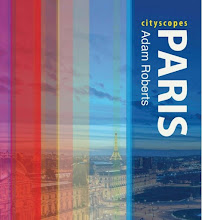 A review of Juraj Lipscher’s Body Shops photo exhibition opening today (May 5th) in Paris.
A review of Juraj Lipscher’s Body Shops photo exhibition opening today (May 5th) in Paris. The white-tiled walls of gallery Les Douches La Galerie have never seemed cleaner. Retained from the public baths that were previously located here, they are now the backdrop of a space that specialises in photographic exhibitions. Their wipe-clean hygenic aspect have now almost become an installation in themselves with the launch of Czech photographer Juraj Lipscher’s fascinating and discomforting Body Shops show.
Lipscher emigrated from Czechoslovakia as a young man, and has since lived for most of his life in Switzerland. He readily admits that the country has become something of an obsession for him, a place where he feels both at once at home and distant. A self-taught photographer, Lipscher wanted to capture the desire for clinical perfection that makes up part of the country’s psyche.
He chose to photograph a selection of sites where the human body is central, from our birth in hospital wards to our death in the morgue or crematorium. Between the two, Lipscher also visited plastic surgery clinics, bomb shelters, fitness centres and brothels. Curiously, people are almost entirely absent from his pictures, but a human presence is always visible through equipment, machines and objects.
 Lipscher agrees that his pictures can also be read as a commentary on Switzerland, and that such a project would have given completely different results in other countries. What reigns here is a clinical coldness, a metallic asepticism that means that each of the environments is in fact completely interchangeable.
Lipscher agrees that his pictures can also be read as a commentary on Switzerland, and that such a project would have given completely different results in other countries. What reigns here is a clinical coldness, a metallic asepticism that means that each of the environments is in fact completely interchangeable. The project became such an obsession that Lipscher – a chemist by training – eventually began producing his own photo development chemicals to perfectly capture the glacial neon lights that he explains are ‘the enemy of the photographer’.
Although people are almost never seen in his pictures, Lipscher points out that they are an essential part of the narrative. When visiting each site, he spends much of his time talking to the people who work there and discovering their rhythms and patterns. Although the brothels were understandably the most difficult places to access, it was the individuals working in the crematoriums who had the biggest effect on him.
“I didn’t sleep for three days after my first visit” he says, “the places have such a powerful effect. But the people who work there are special. They seem to be touched by a greater humanity than anybody else”.
 Lipscher’s photos – naturally in crisp black and white – show a society where impersonal sterility has enabled the development of a liberal permissiveness, but they also display a lack of soul. This is perhaps the reason why Lipscher has begun a new project – tentitively called ‘soul shops’ - where he will be looking for signs of spirit in a selection of religious locations – in Switzerland once more of course!
Lipscher’s photos – naturally in crisp black and white – show a society where impersonal sterility has enabled the development of a liberal permissiveness, but they also display a lack of soul. This is perhaps the reason why Lipscher has begun a new project – tentitively called ‘soul shops’ - where he will be looking for signs of spirit in a selection of religious locations – in Switzerland once more of course! Body Shops by Juraj Lipscher
Les Douches La Galerie
5 Rue Legouvé, 75010 M°Jacques Bonsergent
From May 5th to June 17th 2011 Wednesday to Friday, 1pm – 7pm, Saturday, 2pm – 6pm
Entrance free














3 comments:
I would go... it makes you think.
Lorsque l'on fait une photo, on la fait parceque l'on a été saisi par quelque chose, une odeur, une ambiance, un contraste et c'est ce qu'on essaie de rendre même sans s'appesentir. Je crois que cela se sent sur ces photos : la présence humaine, la sueur, le travail, le temps qui passe...
I'm not so sure I like the content of the most of the photos but it was interesting to read about the photographer and his interest in photo film processing.
Post a Comment